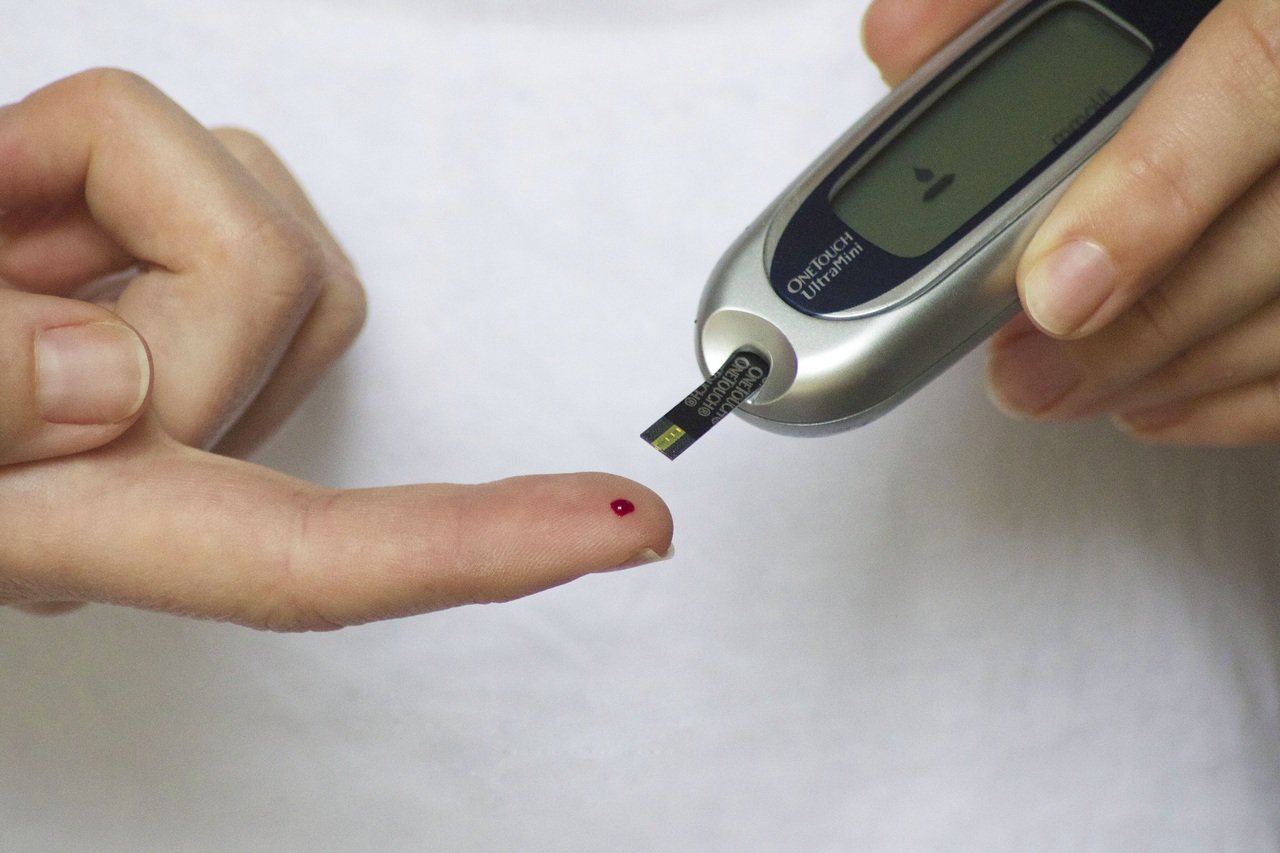For people with diabetes—whether Type 1, Type 2, or gestational—maintaining a healthy weight is not only about appearance but also about controlling blood sugar levels, reducing complications, and improving overall quality of life.
Managing Weight While Living with Diabetes. Weight management plays a crucial role in diabetes care. However, there are multiple discussions on managing weight which often include unconfirmed and unverified sources. Thus, it is imperative to get health related information from reliable places.
Weight management can feel complex for diabetics because it involves balancing food choices, physical activity, and medication, all while monitoring blood glucose. However, with a structured and informed approach, it is possible to achieve and sustain healthy weight goals.
1. Understanding the Connection between Weight and Diabetes
- Type 2 Diabetes: Excess body fat, especially around the abdomen, increases insulin resistance. This means the body needs more insulin to regulate blood sugar, leading to elevated glucose levels.
- Type 1 Diabetes: Weight management is also important, though challenges often stem from insulin therapy, which can sometimes promote weight gain.
- Gestational Diabetes: Weight management during pregnancy must be approached carefully to ensure the health of both mother and baby.
In all cases, a healthy weight reduces the risk of complications such as heart disease, neuropathy, and kidney issues.
2. Setting Realistic Weight Goals
Talking of Managing Weight While Living with Diabetes. Well, it is very important. Weight management is not about rapid loss but about sustainable lifestyle changes. For most individuals with Type 2 diabetes, losing 5–10% of body weight can significantly improve insulin sensitivity and blood sugar control. Goals should be:
- Specific: e.g., losing 1–2 pounds per week. It should be a slow process.
- Realistic: focusing on gradual progress rather than drastic changes.
- Health-Centered: aiming for better blood sugar management, not just aesthetics.
- Regular Follow-Up: Checking with a practitioner is recommended.
3. Nutritional Strategies for Weight and Blood Sugar Control
Food is the most powerful tool in managing both weight and diabetes. Key strategies include:
a. Balanced Diet Composition
- Carbohydrates: Choose complex carbs (whole grains, legumes, vegetables) over refined ones. Monitor carbohydrate intake to prevent spikes in blood glucose.
- Protein: Lean protein sources (chicken, fish, tofu, eggs, beans) help with satiety and prevent overeating.
- Healthy Fats: Include unsaturated fats (olive oil, nuts, avocados) while limiting trans and saturated fats.
- Fiber: High-fiber foods slow glucose absorption, improve digestion, and support weight control.
b. Portion Control
Overeating—even healthy foods—can cause weight gain and glucose imbalances. Techniques such as the “plate method” (½ vegetables, ¼ lean protein, ¼ whole grains) help maintain balance.
c. Meal Timing
Consistent meal timings prevent sharp fluctuations in blood sugar. Some people with diabetes benefit from smaller, more frequent meals throughout the day.
d. Limiting Sugary Foods and Beverages
Sweetened drinks, desserts, and processed snacks can lead to rapid glucose spikes and unnecessary calorie intake.
4. The Role of Physical Activity
If you’re Managing Weight While Living with Diabetes. Exercise is a cornerstone of diabetes management and weight control. Benefits include improved insulin sensitivity, better glucose regulation, and enhanced energy expenditure.
- Aerobic Exercise: Walking, swimming, cycling, or jogging for at least 150 minutes per week.
- Strength Training: Resistance exercises 2–3 times per week build muscle, which helps in burning more glucose.
- Flexibility and Balance: Yoga or stretching for overall well-being and stress reduction.
- Walking in the Green: Regular intervals of strolling on the grass or around green places is one of the best relaxants.
Before starting a new regimen, individuals should consult their healthcare provider, particularly if they have complications like neuropathy or heart conditions.
5. Medication and Insulin Considerations
While Managing Weight While Living with Diabetes. Some diabetes medications may promote weight gain, while others assist in weight loss. For example:
- Metformin often helps with modest weight loss.
- GLP-1 receptor agonists (like semaglutide) can aid weight reduction while improving blood sugar.
- Insulin therapy may sometimes contribute to weight gain, requiring careful monitoring and dietary adjustments.
- Close collaboration with healthcare providers ensures that medication plans support both glucose management and weight goals.
6. Behavioral and Lifestyle Modifications
If you’re Managing Weight While Living with Diabetes. Managing weight with diabetes is as much about habits as it is about food and exercise. Useful approaches include:
- Self-Monitoring: Tracking blood sugar, food intake, and activity levels helps identify patterns.
- Stress Management: Chronic stress can raise blood sugar and trigger overeating. Practices like meditation and deep breathing are beneficial.
- Adequate Sleep: Poor sleep disrupts hormones that regulate hunger, leading to weight gain. Aim for 7–9 hours of restful sleep.
- Support Systems: Joining support groups or working with dietitians and diabetes educators fosters accountability.
7. Avoiding Common Pitfalls
Well, Managing Weight While Living with Diabetes is difficult. One of the most common pitfalls include our regular routines. You need to ensure that you avoid it. So, you must avoid:
- Crash Diets: Rapid weight loss methods are unsustainable and risky for diabetics.
- Skipping Meals: This can cause hypoglycemia (low blood sugar), especially for those on insulin or certain medications.
- Ignoring Blood Sugar: Focusing solely on calories without monitoring glucose levels can be dangerous.
8. Long-Term Sustainability
Whenever you’re Managing Weight While Living with Diabetes. The goal is not short-term dieting but adopting a lifestyle that balances nutrition, activity, and emotional well-being. Gradual changes—like replacing sugary drinks with water, walking after meals, or cooking more at home—create lasting impact.
For people living with diabetes, weight management is both a challenge and an opportunity. It requires careful coordination of diet, exercise, medication, and daily habits. However, when approached systematically, even modest weight loss can significantly improve blood sugar control, reduce complications, and enhance quality of life. The key is consistency, personalization, and a focus on health rather than quick fixes. With professional guidance and self-discipline, weight management becomes a powerful tool in living well with diabetes.
The Diabetic Weight Management Meal Plan
The following meal plan is designed to help individuals with diabetes manage their weight while keeping blood sugar stable. It is important when managing weight while living with diabetes. It emphasizes balanced nutrition, portion control, and foods with a low glycemic index. The plan includes lean protein, fiber-rich carbohydrates, and healthy fats. Portions should be personalized based on calorie needs, medications, and medical advice, so consultation with a dietitian or physician is strongly recommended.
Best Breakfast for Diabetic Weight Management:
- ½ cup oatmeal topped with a handful of berries and 1 tsp chia seeds; 1 boiled egg and Unsweetened green tea or black coffee
- 2 scrambled eggs with spinach and mushrooms, 1 slice of whole grain toast, Black coffee or tea
- Veggie omelet (2 eggs, onions, spinach, bell peppers); 1 slice whole grain toast
- ½ cup steel-cut oats with a few sliced strawberries and 1 tbsp flaxseed along with 1 boiled egg
Best Snacks for Diabetic Weight Management:
- A small apple with 1 tbsp natural peanut butter
- ½ cup Greek yogurt (unsweetened) with flax seeds
- ½ cup plain Greek yogurt with cinnamon and 3–4 walnut halves
- 10–12 raw almonds
- Herbal tea
Best Lunch Options for Diabetic Weight Management:
- Grilled chicken breast (100–120g) along with 1 cup steamed broccoli and carrots and ½ cup quinoa; Side salad with olive oil dressing
- Grilled turkey or chicken wrap with whole wheat tortilla, lettuce, cucumber, and hummus; small side salad
- Lentil soup (low sodium); Side of mixed greens salad with olive oil and lemon
- Grilled salmon salad with leafy greens, cherry tomatoes, cucumber, and olive oil dressing; 1 slice whole grain bread
- Baked cod fish with lemon and herbs; ½ cup quinoa and Steamed spinach
- Grilled chicken Caesar salad (use Greek yogurt-based dressing); 1 slice of whole wheat pita bread
- Grilled chicken breast; Steamed broccoli and cauliflower and ½ cup quinoa
Best Options for Dinner for Diabetic Weight Management:
- Baked salmon (120g); Roasted zucchini and asparagus and ½ cup brown rice
- Grilled shrimp stir-fry with mixed vegetables (bell peppers, bok choy, broccoli) and ½ cup brown rice or cauliflower rice
- Grilled chicken thigh (skinless); Steamed green beans and cauliflower and ½ small baked sweet potato
- Grilled chicken or turkey meatballs; Steamed zucchini noodles or whole wheat pasta (small portion) and Tomato-basil sauce (low sugar)
- Turkey chili with beans, bell peppers, and tomatoes (low sodium); Side of cucumber salad
- Baked salmon or trout; Roasted Brussels sprouts and ½ cup wild rice
- Grilled turkey burger (no bun), Roasted zucchini and peppers and Small side salad with olive oil dressing
Reminder: Tips for Diabetic Weight Management
- Stay hydrated: Drink water throughout the day; avoid sugary drinks.
- Control portions: Even healthy foods can affect blood sugar if consumed excessively.
- Pair carbs with protein/fiber: This slows down glucose absorption and prevents spikes.
- Monitor blood glucose: Check regularly to see how meals affect your levels.
- Be flexible: Swap meals or snacks to fit personal taste and cultural preferences, while keeping nutrition in balance.


